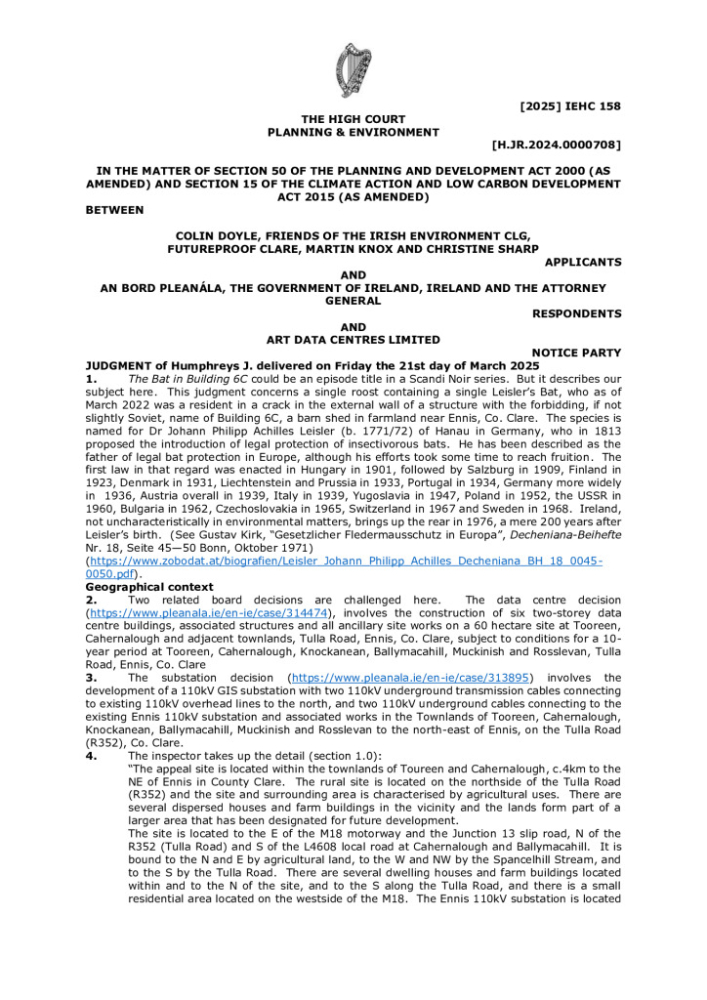- within Real Estate and Construction topic(s)
- in Ireland
- with readers working within the Business & Consumer Services industries
- within Environment and Transport topic(s)
William Fry was delighted to act for Art Data Centres Limited in this landmark case, in which our client's planning permission was challenged.
William Fry successfully defended a Judicial Review ground on behalf of its developer client, which ground An Bord Pleanála had already conceded. As noted by Humphreys J, no previous developer in the State has succeeded in defending an objection which An Bord Pleanála was prepared to concede. A very interesting case in relation to "harmless error" in decisions by An Bord Pleanála and a great win for our client.
This significant case, Doyle & Ors v An Bord Pleanála & Ors [2025] IEHC 158, deals with the impact of a "harmless error" in planning decisions. An Bord Pleanála conceded an error concerning the assessment of impacts on bat fauna, specifically a failure to identify the loss of one bat roost. Despite this concession, William Fry, on behalf of Art Data Centres Limited, successfully argued before the High Court that the error was immaterial and did not warrant quashing the planning permission.
Humphreys J. emphasised that the developer's evidence demonstrated that potential bat roosts were accounted for in the environmental assessments and the mitigation measures – whether any roosts were actually occupied at any given time did not affect the substance of An Bord Pleanála's overall assessment of biodiversity issues. The Court accepted the principle that an error should not lead to the quashing of a decision if it did not materially affect the outcome. This ruling establishes a crucial precedent, demonstrating that developers can succeed in defending planning permissions even when An Bord Pleanála concedes a point of challenge. The case highlights the Court's role in assessing the materiality of errors by considering all available evidence, including that from the developer.
Click below to read more.
The content of this article is intended to provide a general guide to the subject matter. Specialist advice should be sought about your specific circumstances.




